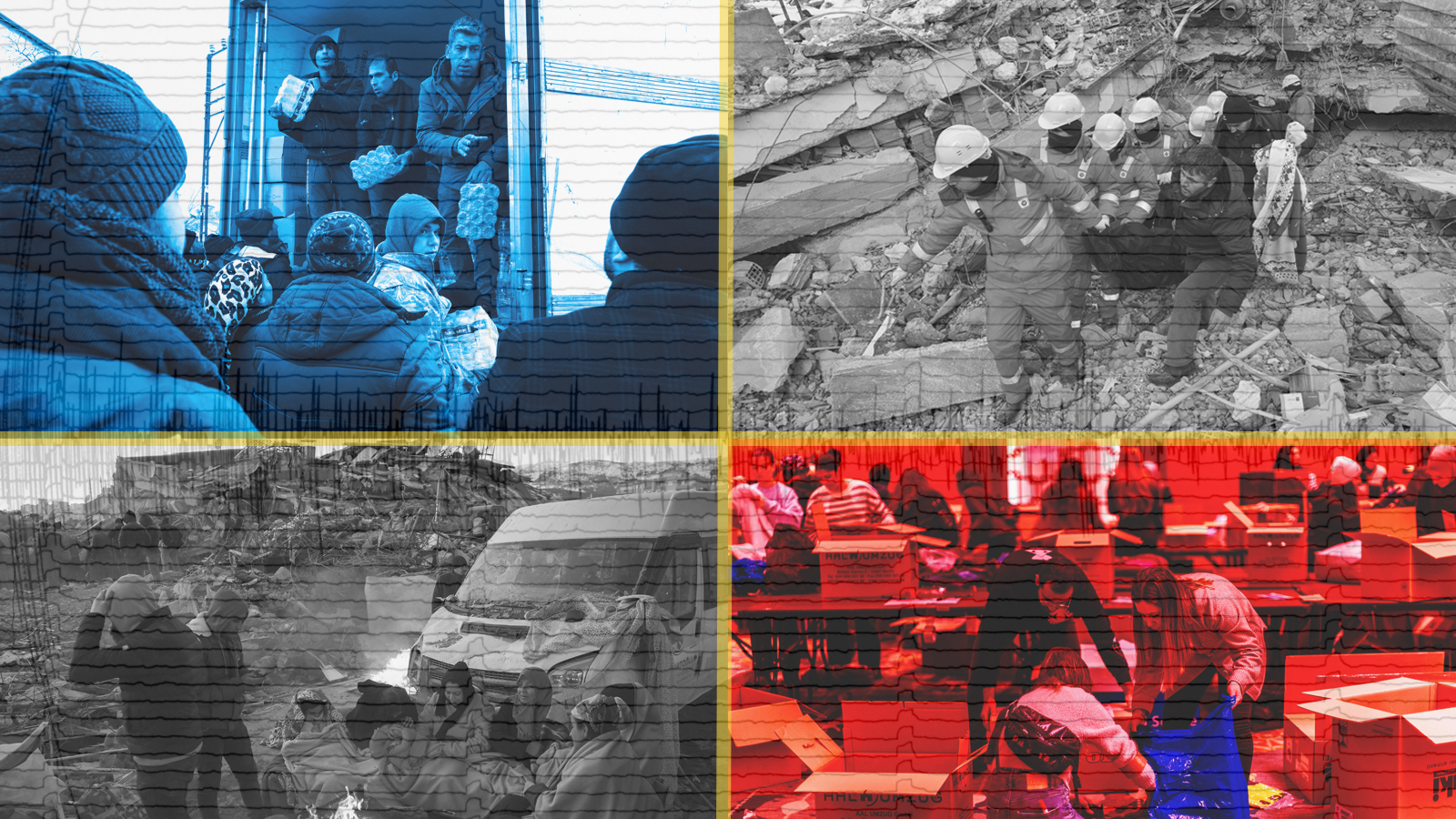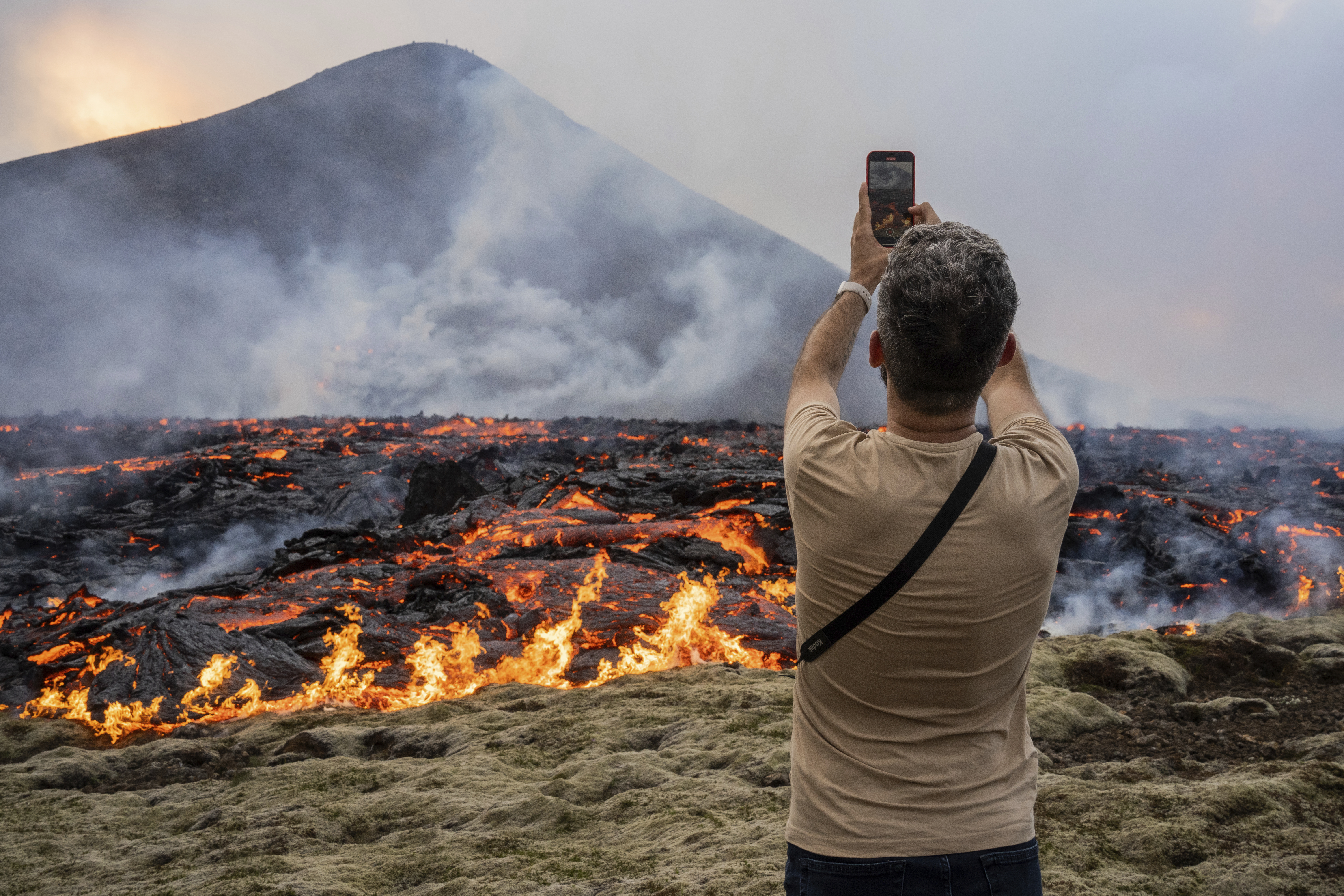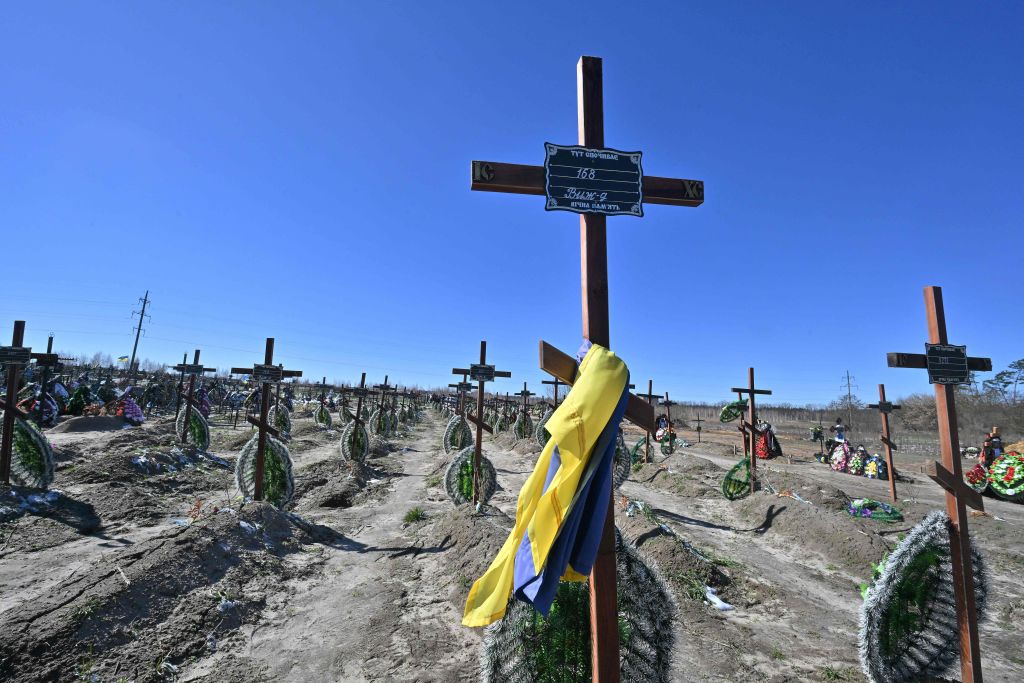What's ahead for quake-stricken Turkey and Syria?
The timeline for a full recovery is likely years rather than months or weeks


A free daily email with the biggest news stories of the day – and the best features from TheWeek.com
You are now subscribed
Your newsletter sign-up was successful
Parts of Syria and Turkey were struck by a devastating earthquake that has taken at least 20,000 lives and left hundreds of thousands of people without shelter in the middle of winter. As rescue workers continue to search desperately for victims trapped in the rubble, both countries face the daunting task of rebuilding and recovering from the disaster, already one of the worst earthquakes of the 21st century. What is the status of the relief and recovery effort? And how long will it be before the stricken regions can recover? Here's everything you need to know:
How bad was it?
The quake, whose epicenter was the Turkish city of Gaziantep, measured 7.8 on the Richter scale. A 7.5-magnitude aftershock struck north of the city just over 9 hours thereafter. By striking before dawn, it dramatically increased the loss of life since most people were asleep and at home in buildings that collapsed or were severely damaged. While Turkey has been struck with 7.0-magnitude quakes this century, this is thought to be the worst since 1939 — the Richter scale is logarithmic, and a 7.8-magnitude quake is almost 16 times as strong as one that measures 7.0.
Gaziantep is a city of 2 million people, the sixth-largest in the country, and it lies along the East Anatolian Fault Line. Videos from the city show the scale of the devastation. Syrian refugee camps along both sides of the Turkish-Syrian border were also heavily impacted. Ironically, refugees housed in tents and other more temporary structures were spared some of the worst devastations by avoiding getting buried under concrete. The disaster was also felt in northwest Syria, affecting areas with hundreds of thousands of Internally Displaced Persons (IDPs) already living in precarity, as well as causing hundreds of buildings to collapse 98 kilometers south of Gaziantep in Aleppo, a city of more than 2 million people that has been heavily damaged during the civil war.
The Week
Escape your echo chamber. Get the facts behind the news, plus analysis from multiple perspectives.

Sign up for The Week's Free Newsletters
From our morning news briefing to a weekly Good News Newsletter, get the best of The Week delivered directly to your inbox.
From our morning news briefing to a weekly Good News Newsletter, get the best of The Week delivered directly to your inbox.
Relief efforts will be slow-going in many places. As the Center for Strategic and International Studies' Erol Yayboke writes, "the magnitude of the destruction means that all relief efforts will be challenging thanks to blocked roads, damaged bridges, communications, and power outages, food and water shortages, and other critical disruptions." And that's without the specter of war. Relief agencies have had great difficulty delivering supplies to areas of Syria controlled by the government of dictator Bashar al-Assad, and have so far been unable to reach areas held by rebels. The situation in Syria, already reeling from a civil war that began in 2011 and still staggers on, is likely to grow more dire in the coming days. "What we have in Syria is an emergency within an emergency," said International Rescue Committee Spokesman Mark Kaye.
While the window to save survivors is rapidly closing, a baby was rescued in Turkey's Hatay province nearly three days after the quake, and a family was pulled from the rubble in the province of Adiyaman. The current death toll of more than 19,000 is likely to increase dramatically in the coming days as officials tally the killed and wounded and those still trapped under debris slip away. "Typically, it is rare to find survivors after the fifth to seventh days, and most search and rescue teams will consider stopping by then," Dr. Jarone Lee, an emergency and disaster medicine expert at Massachusetts General Hospital told NBC News. But he noted that there are cases of people surviving well past a week. For example, a 16-year-old girl was pulled from her collapsed house in Port-Au-Prince 15 days after a devastating earthquake struck Haiti in 2010.
How long will it take to rebuild?
In the aftermath of earthquakes, two things need to be rebuilt — lives and structures. In wealthier countries, a combination of insurance and government aid can help many people get back on their feet in a reasonable amount of time. For example, much of the $6 billion in property damage inflicted by the 1989 Loma Prieta Earthquake in the Bay Area of California was recouped through insurance. The Bay Bridge, which sustained significant damage when part of the upper span collapsed onto the lower span, was reopened in a month. Electricity was restored to most of the city within a day, but it took two weeks to restore water service in some areas. The New York Times reported that the city had returned to "near-normal" just two days after the disaster.
On the other end of the spectrum, Haiti is still rebuilding more than 12 years after the apocalyptic earthquake that took an almost unfathomable 220,000 lives (some estimates are even higher) and leveled the capital city of Port-au-Prince. The much more difficult struggle to recover in Haiti is a reflection of differences in regulations, wealth, and institutions. In Syria, where a 12-year-long civil war has already left the country destitute and isolated, the aftermath is more likely to resemble Haiti's than San Francisco's.
A free daily email with the biggest news stories of the day – and the best features from TheWeek.com
In Turkey, the government has much more of what political scientists call "state capacity" — the ability to respond quickly to natural disasters, alleviate suffering, and jumpstart rebuilding efforts. But while Turkey has not been torn apart by civil war, it is still not a rich country, and years of soft authoritarianism under the country's President Recep Tayyip Erdogan have eroded the quality of its institutions. On top of persistently high inflation, frustration with the government's slow response to the quake may soon threaten Erdogan's rule. While the country has strict building codes given its history of earthquakes, it appears that some construction companies simply ignored them in this part of the country. Even many buildings that survived will have to be torn down and reconstructed.
The time horizon for a full recovery is likely years rather than months or weeks. "A true understanding of the physical and social effects of a large earthquake will emerge only over decades," Cornell University earth and atmospheric sciences professor Judith Hubbard wrote in The Washington Post on Wednesday. Kevin McCue, Director of the Australian Seismological Centre, similarly told The New York Times that the process could take a decade.
The World Health Organization expects the death toll to climb significantly, even as dozens of relief agencies and governments try to coordinate rescue and aid efforts. The New York Times has compiled a guide to how you can help — and how to maximize the impact of your donation.
David Faris is a professor of political science at Roosevelt University and the author of "It's Time to Fight Dirty: How Democrats Can Build a Lasting Majority in American Politics." He's a frequent contributor to Newsweek and Slate, and his work has appeared in The Washington Post, The New Republic and The Nation, among others.
-
 The EU’s war on fast fashion
The EU’s war on fast fashionIn the Spotlight Bloc launches investigation into Shein over sale of weapons and ‘childlike’ sex dolls, alongside efforts to tax e-commerce giants and combat textile waste
-
 How to Get to Heaven from Belfast: a ‘highly entertaining ride’
How to Get to Heaven from Belfast: a ‘highly entertaining ride’The Week Recommends Mystery-comedy from the creator of Derry Girls should be ‘your new binge-watch’
-
 The 8 best TV shows of the 1960s
The 8 best TV shows of the 1960sThe standout shows of this decade take viewers from outer space to the Wild West
-
 10 things you need to know today: August 19, 2023
10 things you need to know today: August 19, 2023Daily Briefing Hurricane Hilary bringing unprecedented storm warnings to Southwest, US enhances security ties with South Korea and Japan amid rising Asian tensions, and more
-
 Is the 'vibecession' over?
Is the 'vibecession' over?Speed Read The IMF reported that the global economy is looking increasingly resilient. Is it time to start celebrating?
-
 Non-aligned no longer: Sweden embraces Nato
Non-aligned no longer: Sweden embraces Natofeature While Swedes believe it will make them safer Turkey’s grip over the alliance worries some
-
 The U.S. veterinarian shortage crisis
The U.S. veterinarian shortage crisisSpeed Read With an anticipated shortage of 15,000 vets by 2030, it will be harder to get care for pets
-
 Iceland closes popular volcano to tourists following eruption
Iceland closes popular volcano to tourists following eruptionSpeed Read
-
 Inside Russia's war crimes
Inside Russia's war crimesSpeed Read Occupying forces in Ukraine are accused of horrific atrocities. Can they be held accountable?
-
 Is it safe to ride a roller coaster?
Is it safe to ride a roller coaster?The Explainer A pair of startling events have shined a light on amusement park safety
-
 World leaders who have been charged or imprisoned
World leaders who have been charged or imprisonedThe Explainer Heads of state being put behind bars is not a rare occurrence
